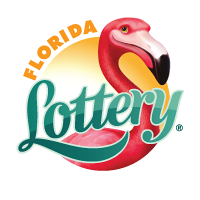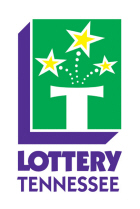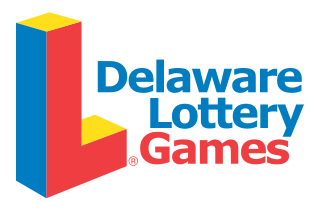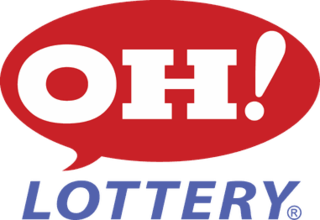
Mega Millions is an American multijurisdictional lottery game; as of June 30, 2023, it is offered in 45 states, the District of Columbia, and the U.S. Virgin Islands. The first Mega Millions drawing was in 2002. What is now Mega Millions initially was offered in six states; the logo for all versions of the game following the retirement of The Big Game name featured a gold-colored ball with six stars to represent the game's initial membership, although some lotteries insert their respective logos in the ball.

The Georgia Lottery Corporation, known as the Georgia Lottery, is overseen by the government of Georgia, United States. Headquartered in Atlanta, the lottery takes in over US$1 billion yearly. By law, half of the money goes to prizes, one-third to education, and the remainder to operating and marketing the lottery. The education money funds the HOPE Scholarship, and has become a successful model for other lotteries, including the South Carolina Education Lottery.

The Florida Lottery is the government-operated lottery of the U.S. state of Florida. As of 2022, the lottery offers eleven terminal-generated games: Cash4Life, Mega Millions, Powerball, Florida Lotto, Pick 2, Pick 3, Pick 4, Pick 5, Fantasy 5, Cash Pop, and Jackpot Triple Play. A player must be 18 or older to play.
The Oklahoma Lottery is an American lottery that is operated by that state's government. The Lottery, which began ticket sales on October 12, 2005, is a member of the Multi-State Lottery Association (MUSL).
The Maine Lottery is run by the government of Maine. It is a member of the Multi-State Lottery Association (MUSL), whose flagship game is Powerball. It was founded in 1974 after being approved through a voter referendum.
The Montana Lottery is run by the government of Montana. It is a member of the Multi-State Lottery Association (MUSL). The Montana Lottery's portfolio consists of scratch tickets, plus Mega Millions, Powerball, Lotto America, Montana Millionaire, Lucky for Life, Big Sky Bonus, Montana Sports Action, Treasure Play and Montana Cash.
The New Hampshire Lottery was established in 1964, making it the third-oldest lottery in the United States, and the oldest in the contiguous United States. New Hampshire's lottery games include Lucky for Life, Mega Millions, Powerball, Tri-State Megabucks Plus, and numerous scratch tickets. All New Hampshire Lottery games require players to be at least 18 years old.
The New Mexico Lottery is run by the government of New Mexico. It was established in 1996. It is a member of the Multi-State Lottery Association (MUSL). It offers draw games and scratch off games. As of December 2014, draw games are Powerball, Mega Millions, Monopoly Millionaires' Club, Hot Lotto, Roadrunner Cash, Pick 3, Quicksters, and Lucky Numbers Bingo.
The North Dakota Lottery is run by the government of North Dakota. The Lottery began in 2004, following voter approval of an initiative constitutional amendment in 2002, Measure 2, which amended Article XI, Section 25 of the North Dakota Constitution to allow for the state to join a multi-state lottery "for the benefit of the State of North Dakota." In-state games were not allowed; 63 percent of voters supported the measure.
The West Virginia Lottery is run by the government of West Virginia. It was established in 1984 via a voter referendum. It is a charter member of the Multi-State Lottery Association (MUSL). The Lottery offers games such as Lotto America, Powerball, Mega Millions, and scratch tickets. West Virginia has reinterpreted the amendment to its Constitution that permitted its lottery to include casinos, and thus the West Virginia Lottery Commission also regulates slot machines, which are marketed as "video lottery" and available at several hundred businesses; and five "lottery table games" casinos.

The Connecticut Lottery Corporation, also called the CT Lottery, is the official lottery in Connecticut. It was created in 1971 by then-Gov. Thomas Meskill, who signed Public Act No. 865. The first tickets were sold on February 15, 1972. The Connecticut Lottery offers several in-house drawing games; Connecticut also participates in Mega Millions and Powerball; each are played in 44 states, the District of Columbia, and the U.S. Virgin Islands.

The Tennessee Lottery is run by the Tennessee Education Lottery Corporation (TELC), which was created on June 11, 2003, by the Tennessee General Assembly. TELC derives its legal authority from the Tennessee Education Lottery Implementation Law, which the General Assembly passed following a November 2002 amendment to the state constitution establishing the lottery and approved by 58 percent of the voters.
The Arizona Lottery is a state agency of Arizona in the southwest United States. It is a member of the Multi-State Lottery Association (MUSL). Lottery draw games include Mega Millions, Powerball, The Pick, Triple TwistFantasy 5, and Pick 3. A variety of instant scratch tickets, or Scratchers, are also offered.

The Delaware Lottery is run by the government of Delaware. Its creation was authorized by the state legislature on May 31, 1974. Its "traditional" games include Play 3, Play 4, Multi-Win Lotto, Lucky For Life, Lotto America, Mega Millions, and Powerball. Delaware also offers Keno, sports betting, and video lottery.
The Missouri Lottery is the state-run lottery in Missouri. It is a charter member of the Multi-State Lottery Association (MUSL). As of 2022, the lottery offers Powerball, Mega Millions, Cash4Life, Lotto, Show Me Cash, Pick 4, Pick 3, Cash Pop, Club Keno, scratchers, and pull-tabs. The minimum age to buy a ticket is 18.

The Ohio Lottery is a state lottery run by the Ohio Lottery Commission. Its games consist of scratch tickets; Pick 3, Pick 4, Pick 5 ; Rolling Cash 5, Classic Lotto, Keno, Lucky for Life, Mega Millions, and Powerball.

The Rhode Island Lottery is run by the government of Rhode Island. The modern form of the Rhode Island Lottery was inaugurated in 1974, following a constitutional amendment passed in 1973. It is a charter member of the Multi-State Lottery Association (MUSL). Rhode Island Lottery games include Mega Millions, Powerball, Wild Money, Keno, and scratch tickets. The Rhode Island Lottery also offers online lottery games and oversees and regulates video lottery as well as sports betting.

The Illinois State Lottery is an American lottery for the U.S. state of Illinois, operated by Camelot Illinois.
The South Carolina Education Lottery (SCEL) began in 2002.
The Vermont Lottery began fiscal operations as an enterprise fund in October 1977, following a 1976 referendum, and the enactment of Public Act No. 82 by the 1977 General Assembly. It is run by the Vermont Lottery Commission, which is headquartered in Berlin. Along with Maine and New Hampshire, Vermont is a member of the Tri-State Lottery.










